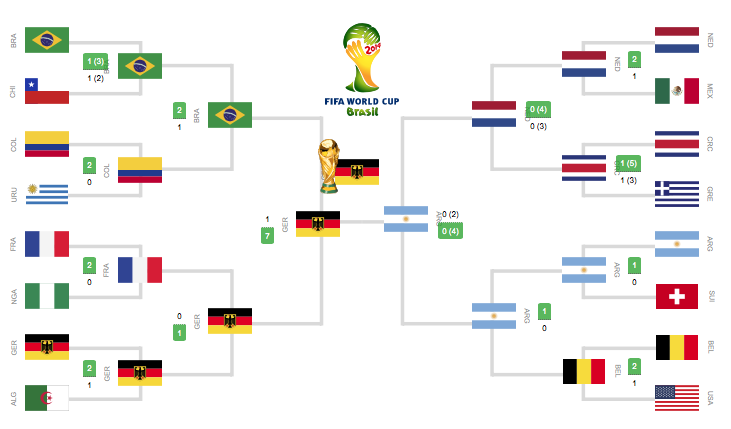Probabilitical Players
 Sixteen players
S
1
,
S
2
,
.
.
.
,
S
1
6
play in a tournament. They are divided into
eight pairs
at random. From each pair a winner is decided on the basis of a game played between the two players of the pair. Assume that all the players are of equal strength.
Sixteen players
S
1
,
S
2
,
.
.
.
,
S
1
6
play in a tournament. They are divided into
eight pairs
at random. From each pair a winner is decided on the basis of a game played between the two players of the pair. Assume that all the players are of equal strength.
Find the probability that exactly one of the two players S 1 and S 2 is among the eight winners .
The probability is in the form b a . Find a + b .
To try more such problems click here .
The answer is 23.
This section requires Javascript.
You are seeing this because something didn't load right. We suggest you, (a) try
refreshing the page, (b) enabling javascript if it is disabled on your browser and,
finally, (c)
loading the
non-javascript version of this page
. We're sorry about the hassle.
2 solutions
Seriously overrated question, don't you think so too sir?
Log in to reply
It's probably a high level 3 question, so it's not that far off what it should be. It hasn't been posted for that long so the points level still has some settling to do.
Log in to reply
Yes,agreed ,when I had solved it it was unrated ,sir
C a n t h i n k o f t w o c a s e s ( 1 ) S 1 a n d S 2 a r e i n p a i r a n d ( 2 ) i t ′ s c o m p l e m e n t P ( S 1 a n d S 2 a r e i n p a i r ) = 1 5 1 P ( S 1 a n d S 2 a r e n o t i n p a i r ) = 1 5 1 4 P ( E x a c t o n e f r o m S 1 a n d S 2 i n f i n a l 8 ) = P ( S 1 a n d S 2 a r e i n p a i r ) P ( E x a c t 1 w i n n e r f r o m S 1 a n d S 2 ) + P ( S 1 a n d S 2 a r e n o t i n p a i r ) P ( E x a c t 1 w i n n e r f r o m S 1 a n d S 2 ) = 1 5 1 × 1 + 1 5 1 4 ( 1 − 4 1 − 4 1 ) = 1 5 1 + 1 5 7 = 1 5 8 . 8 + 1 5 = 2 3
Since S 1 has an equal chance of being paired with any of the other 1 5 players, there is a probability of 1 5 1 that S 1 and S 2 will be paired together and a probability of 1 5 1 4 that they will be in different pairings.
If they are paired together then it is certain that exactly one of them will be among the eight winners.
If they are not paired together, then there is a probability of 2 1 that exactly one of them will win their pairing.
Thus the desired probability is ( 1 5 1 ) ( 1 ) + ( 1 5 1 4 ) ( 2 1 ) = 1 5 8 ,
and so a + b = 8 + 1 5 = 2 3 .